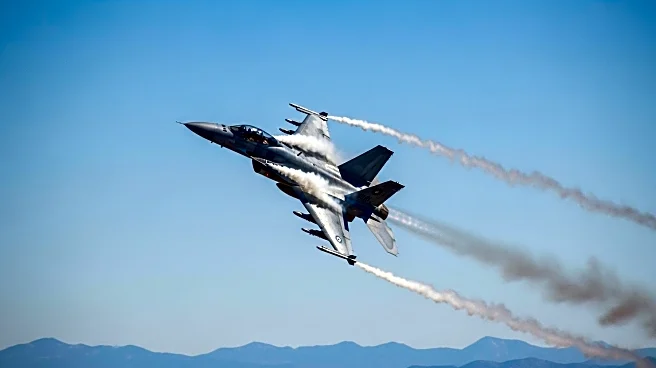What's Happening?
The Israeli Defense Forces (IDF) conducted a significant military operation targeting Hezbollah's underground military infrastructure and weapons sites in southern Lebanon near Beaufort Castle. The strikes, which occurred early Sunday, resulted in explosions heard across northern Israel. The IDF stated that the operation was necessary to eliminate threats posed by Hezbollah, which they claim violates understandings between Israel and Lebanon. This action follows an incident where an Israeli drone explosion accidentally killed two Lebanese soldiers. The Lebanese government is expected to present a plan for Hezbollah's disarmament, with the United States having announced measures to persuade Hezbollah to relinquish its weapons.
Why It's Important?
The IDF's strikes on Hezbollah sites underscore ongoing tensions between Israel and Lebanon, particularly concerning Hezbollah's military capabilities. The operation highlights Israel's commitment to countering perceived threats from Hezbollah, which is considered a significant security concern. The Lebanese government's forthcoming disarmament plan, influenced by U.S. pressure, could alter the balance of power in the region. However, internal resistance within Lebanon, including from the Lebanese Army, complicates the disarmament process. The situation has implications for regional stability, U.S. foreign policy, and the security dynamics in the Middle East.
What's Next?
Lebanon's plan for Hezbollah's disarmament is expected to be presented soon, with potential U.S. intelligence support to monitor Hezbollah positions. However, resistance from Lebanese military leaders and political figures may hinder progress. The Lebanese government may delay further steps until regional actors, including Israel and Syria, agree on a U.S.-proposed framework. Prime Minister Nawaf Salam remains committed to advancing the disarmament agenda, but internal and external pressures could impact the timeline and effectiveness of these efforts.









